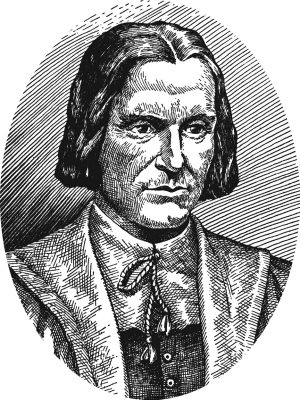|
The Man Who Dreamed of Liberty!
TABLE OF CONTENTS
No man ever had a clearer vision of the proper relationship of church and state, of the fallacies and dangers of a totalitarian or authoritarian system of government—that is, one that rules all men in all things, both secular and spiritual—than did Roger Williams. In the United States it has been taken for granted that since the founders of the American Republic placed a Bill of Rights in the Federal Constitution, the liberties of American citizens are forever secure, and that the proper relationship of church and state has been finally and forever settled. Unfortunately, such is not the case. Wherever we look, outside of America as well as in America, the inalienable rights of man are being more and more regulated and restricted, and nearly all the activities of life, in both the spiritual and the secular realm, are being regimented and circumscribed. In every country the question of the relation of church and state holds the center of the stage. Everywhere the nations are beginning to set limits to freedom of action, and many are setting up the authority of the state as supreme in all things, both religious and civil. Roger Williams lived in times when church and state were united both in Europe and in America; and in certain parts of the world the church was in supreme control both spiritually and politically. In his day, it was considered heretical, seditious, and treasonable to advocate and work for the separation of church and state, not only in Europe, but in the Puritan colonies of America. The advocacy of this doctrine led to the banishment of Roger Williams and to the founding of a new and independent government in Rhode Island, which incorporated the ideals of its founder, and granted to each individual, for the first time in history, the full enjoyment of his inalienable rights, and complete civil and religious liberty in matters of faith and conscience. The famous debate between Roger Williams and John Cotton, which was published in a book entitled, “The Bloudy Tenent of Persecution,” is in its main features set forth in one of the chapters of this book. There are only two of the original copies of “The Bloudy Tenent of Persecution” preserved, so far as present records indicate. The principles set forth in this book by Roger Williams need to be reiterated. No one ever stated the fundamental principles of civil and religious liberty more clearly than did he. No thoughtful observer can fail to see the sinister trends away from liberty. Unless this tendency is checked by public sentiment, the heritage of civil and religious liberty is doomed for the future. An adherence and a devotion to the great ideals which laid the foundation of the greatest republic in the world, will also lead to the preservation of the principles upon which the perpetuity of that Republic, as well as other republics, now rests. Roger Williams was the apostle of a doctrine which in time became the fundamental tenet of American philosophy of civil government–the proposition that the civil authorities have no jurisdiction over the conscience in religious matters, and that the civil government is divinely ordained to function “in civil things only.” Because of the courage which he manifested when it was treasonable to express his convictions on the subject of the freedom of the soul in spiritual matters, he won for himself a place in the Hall of Fame, and in the hearts of all men who love freedom more than slavery. Whatever rights to untrammeled thought and action the people enjoy in human government, they possess largely as a result of the matchless teachings of this remarkable man who caught a vision of the divine prerogative of the individual to enjoy his God-given rights. Williams was fortunate to possess a personality that was winning and a spiritual integrity which would not compromise with expediency. The reason he was not bound to a stake and burned as were a host of other martyrs of his day, and other days, was that he succeeded in making his escape from the snare of the spiritual fowlers, in a land where it was possible to flee to a place of safety. But even if he had perished before the realization of his dream of a “free church in a free state,” the ideal which he advocated and the seeds of soul liberty which he planted in the hearts of Americans, would have survived. That is the proof of the value and importance of the principles which he advocated, and which are quite fully set forth in this work. They are imperishable principles because they represent the basic philosophy of the ideals of God in the ordination of human government.
|

